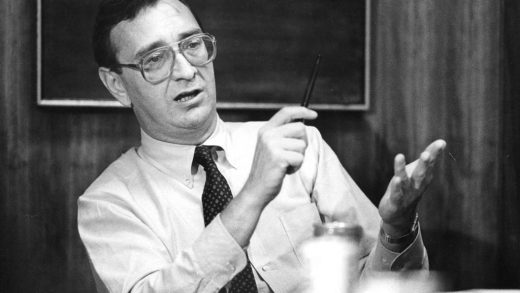‘Okay, you can stop now’ at Theatre Passe Muraille makes art out of information overload
:format(webp)/https://www.thestar.com/content/dam/thestar/entertainment/stage/2023/02/01/okay-you-can-stop-now-at-theatre-passe-muraille-makes-art-out-of-information-overload/shakeil_rollock.jpg)
The 24-hour news cycle is omnipresent. For better or worse, it’s the thing that connects us all as important events shift and develop.
This week at Theatre Passe Muraille, a physical theatre creation will examine what exactly it is about that news cycle that interacts with our own, personal histories.
“Okay, you can stop now,” created, directed and choreographed by Shakeil Rollock, takes a hard look at how we as a society create — and internalize — new information. Four performers navigate a landscape full of newspapers and, as they dance, the weight of current events (as well as their own histories) become heavier and heavier.
The newspapers came from an experiment: what happens when you fill a performance space with objects?
For Rollock, the choice to litter the space with newsprint immediately elevated the choreography.
“Before that, things were deep and things were beautiful,” he said in an interview. “But I wanted it to be ugly. I wanted to try something new … we literally went to the recycling and took a bunch of newspapers and threw them around the room. That’s how working with the medium started.”
Rollock, a graduate of the School of Toronto Dance Theatre, has experience across dance genres, ranging from ballet to mime and everything in between. Upon graduation, Rollock realized he still had much to learn about himself as an artist.
“I had a rough experience realizing I was Black,” he said. “I know that sounds weird, but at my exit interview I was told, you know, it’s not a bad thing being a Black male dancer.
“I’m still taking time to reflect on it. I was given a lot of opportunity in school, when at first it was like, ‘Wow, they liked me.’ But then I realized it was more of a diversity hire situation. So I used that to my advantage — the exposure, the connections — but I was still figuring out how they check their box.
“This was before George Floyd … and it led me to say, ‘You know what? I’m going to create my own work.’”
Frustrating professional experiences for Rollock led to the creation of much new work — “angry, wrath, angsty work,” in Rollock’s words — as well as valuable revelations.
“I started to see the parallels between my experience of being a minority in a space and those of others … all the -isms and -obias, as I call them, and how they’re all parallel.
“I was taking an African dance class once and someone brought their baby. And people were getting annoyed. And the teacher paused the class and he said, ‘You see that baby? You’re not better than that baby, you’re just more experienced.’ And that opened up my mind … I saw we’re all equal, it’s just that we have different experiences that put us in different situations.”
“Okay, you can stop now” soon followed during a residency at Dancemakers in Toronto. Rollock was also inspired by a photography exhibit, “Human Rights Human Wrongs,” at the former Ryerson Image Centre.
“It was photos of trauma. These were hard images. And they struck the idea of the work into my head before I even knew it. And they had small cards you could take — samples of the work — which caught my attention. Those cards were the basis for a lot of the imagery of the first version of ‘Okay, you can stop now.’”
The physicality of the piece followed the images.
“I was pushing limits, seeing how long people could do things, how much they could bear, how much weight they could hold until enough was enough,” said Rollock.
“It was originally about showing the truths and the experiences of the minority. I feel the ‘trauma porn’ thing is overdone at the moment because of George Floyd and everything, so I wanted to focus on, yes, these things happen, but there are also parallel experiences for different people.
“I’m constantly trying to find a way to allow this piece to live and transition into real life.”
The conclusion Rollock found was simple: much of the heartache and pain of the world could be solved by active listening.
“Ninety per cent of the issues we have in this world would be solved if we actively listened and did not assume,” said Rollock.
“We’re all going through s—. But if we just take a second to actually listen, we can understand and help support each other.”
At the end of the day, the driving through-line of “Okay, you can stop now” is the idea of personal history, something that has fascinated Rollock for years.
“The news is our common denominator that everyone can refer back to,” said Rollock. “But it’s the personal histories of the actors, or the dancers, that shape what the work will be.
“News is the common denominator of our society and that’s represented here. But you are who you are because of what you’ve been through and that’s what I wanted to shed light on.”
JOIN THE CONVERSATION
Credit: ‘Okay, you can stop now’ at Theatre Passe Muraille makes art out of information overload


